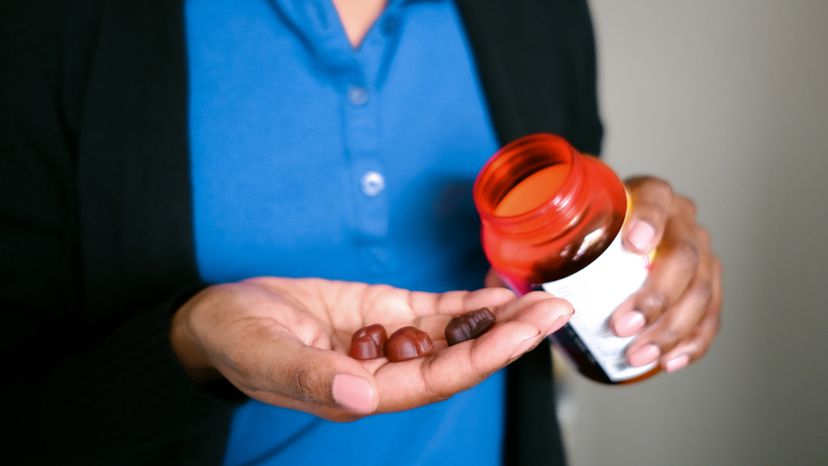
If you have read the article How Cells Work, then you know that DNA is a template for different enzymes. Enzymes help cells to carry out chemical reactions. A cell is really just an extremely sophisticated chemical machine.
A vitamin is a small molecule that your body needs to carry out a certain reaction. Your body has no way to create vitamin molecules itself, so the vitamin molecules must come in through food that you eat. The human body is known to need at least 13 different vitamins:
Advertisement
Inside the body, vitamins are used in many unique ways. For example, one of vitamin A's main roles is in the production of retinal. Retinal is used within the rods and cones in your eyes to sense light. There is no way for your body to produce retinal without vitamin A, and without retinal you cannot see.
The different B vitamins are often embedded within the structure of different enzymes that a cell produces. For example, aspartate aminotransferase is an enzyme that transfers amines between amino acids. Each copy of the enzyme contains two vitamin B6 molecules, and without these molecules the enzyme cannot do anything.
One use of Vitamin C is in the formation of collagen. Collagen is produced by special ribosomes in certain cells, and then exported from the cells to form collagen networks. During the process of collagen formation, the body must manufacture hydroxylproline from the amino acid proline. Vitamin C is essential to this reaction. Without vitamin C, collagen cannot be produced -- the first signs of this are very weak (and easily broken) blood vessels and loose teeth (which are held in their sockets by collagen).
The body is able to store some vitamins, such as vitamin A (up to a year's supply is stored in your liver). Other vitamins need to be re-supplied frequently.
Advertisement
